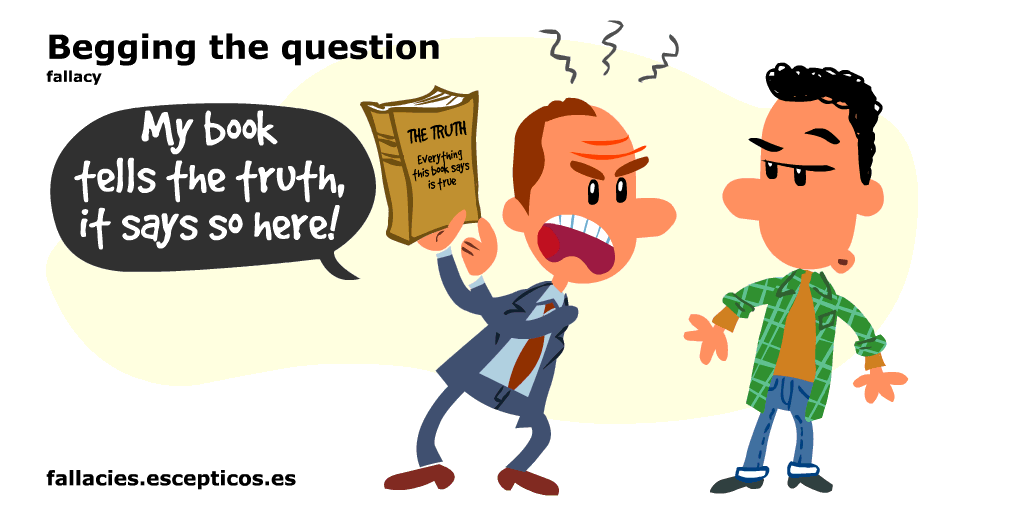Fallacy committed when someone wants to prove something by including it in the demonstration itself.
Source, wikipedia
This fallacy is committed when the proposition that is to be proven has already been implicitly or explicitly included in some premises. The Greek philosopher Aristotle, in his first analytical work, coined the first (known in the West) definition of this fallacy as a logical concept.
Examples
Let’s look at an attempt to prove that Jacques Lacan is telling the truth:
– Let’s suppose Jacques Lacan does not lie when he speaks (that is, he tells the truth).
-Jacques Lacan is speaking.
-Therefore, Jacques Lacan is telling the truth.
All these arguing ways are not logical, they do not prove anything. Therefore, they are sophisms or pseudo-reasoning. Here, the author, when trying to prove Lacan’s truthfulness, asks their audience to assume that “Lacan tells the truth”. So he ends up “proving” that “if Lacan doesn’t lie, then he tells the truth” -that is the problem.
To refute it
Whenever “begging the question” is used, the proposal is sneaked into some of the argued premises. You have to find it (it is very hidden sometimes) and bring it forth.
Whenever the source is not referenced, both definitions and examples have been extracted from a translation of Jaime Wilson [email protected] based on Stephen’s Guide to the Logical Fallacies. Copyright 1995-1998 Stephen Downes. Brandon, Manitoba, Canada.
These texts have been modified by Miguel A. Lerma and now by us to adapt them -and those taken from Wikipedia- to our format.
